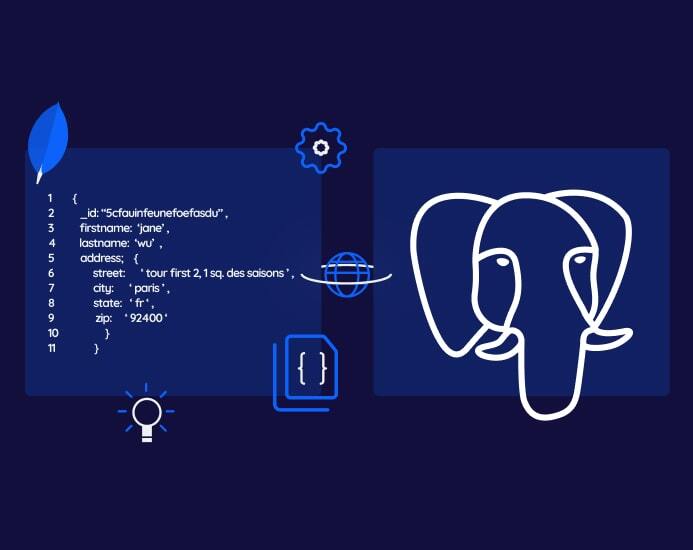PostgreSQL HubSpot integration is about benefiting each industry by:
- Enabling data-driven decision-making.
- Enhancing personalization.
- Improving operational efficiencies.
This strategic alignment of CRM and database technologies supports a more nuanced understanding of customer interactions, preferences, and behaviors, fostering better customer relationships and business growth.
Let’s see how such integration works and how it benefits businesses.
E-Commerce
- Benefit: Enhanced Customer Insights for Personalization
- How It Works: By syncing customer interaction data from HubSpot with purchase history and inventory data in PostgreSQL, e-commerce businesses can tailor marketing campaigns and product recommendations to individual customer preferences, driving higher engagement and sales.

Healthcare
- Benefit: Improved Patient Engagement and Service
- How It Works: Healthcare providers can integrate patient interaction data from HubSpot with EHR stored in PostgreSQL to enable personalized patient communication and better service delivery, such as targeted health tips, appointment reminders, and follow-up care instructions.
Real Estate
- Benefit: Streamlined Lead Management and Follow-Up
- How It Works: Real estate agencies can use the integration to enhance lead management by synchronizing HubSpot’s lead and engagement data with PostgreSQL’s property listings and client databases to allow automated follow-ups, personalized property recommendations, and efficient tracking of client interactions.
Education
- Benefit: Targeted Student Recruitment and Retention Strategies
- How It Works: Educational institutions can merge student inquiry data from HubSpot with academic records in PostgreSQL to create targeted recruitment campaigns and retention strategies. Analyzing data patterns helps identify prospective students’ interests and improve current students’ engagement through personalized communication.
Financial Services
- Benefit: Data-Driven Customer Service and Product Offers
- How It Works: Financial institutions can integrate client interaction data from HubSpot with account information in PostgreSQL. to deliver personalized service and tailored products, like loan options or investment advice, based on customer behavior and preferences.
Technology and SaaS
- Benefit: Optimized Customer Lifecycle Management
- How It Works: SaaS companies can combine usage data from their software (stored in PostgreSQL) with marketing and sales interactions from HubSpot to gain insights into the customer lifecycle. This integration helps identify upsell opportunities, reduce churn, and optimize onboarding processes.

Manufacturing
- Benefit: Improved B2B Customer Engagement and Order Management
- How It Works: Manufacturers can integrate HubSpot’s CRM data with order management and inventory systems in PostgreSQL for better forecasting, personalized communication with distributors and retailers, and streamlined order processing.
How PostgreSQl HubSpot Integration Helps to Avoid Potential Pitfalls in Different Business Areas
Integrating PostgreSQL with HubSpot mitigates common pitfalls in various business areas by ensuring data is centralized, up-to-date, and secure. This holistic approach to data management enhances operational efficiency and decision-making across the firm and supports a more integrated and agile business strategy. Review the elements in the table below to see how these scenarios work.
| Business Area | Potential Pitfall | How Integration Avoids Pitfall |
| Marketing | Ineffective targeting due to fragmented customer data. | Integration consolidates customer data, enabling precise segmentation and personalized marketing campaigns. |
| Sales | Lost sales opportunities from untracked customer interactions. | Seamless data flow ensures all interactions are logged and accessible, enhancing lead nurturing and follow-up strategies. |
| Customer Service | Inconsistent customer support experiences. | Centralized data provides a comprehensive view of customer history, improving service personalization and satisfaction. |
| Product Development | Misalignment between product offerings and customer needs. | Customer feedback and engagement data inform product development, aligning offerings more closely with market demands. |
| Operations | Inefficiencies in operational processes due to siloed data. | Automated synchronization of data across systems streamlines operations, reducing manual errors and saving time. |
| Finance | Difficulty in forecasting and budgeting due to disparate data sources. | Integrating financial performance data with operational metrics supports more accurate forecasting and budget management. |
| IT | Challenges in managing data security and compliance. | PostgreSQL’s robust security features, combined with centralized data management, enhance data security and compliance efforts. |
Actual Pain Points and Solutions
Let’s review the stories illustrating how integrating PostgreSQL with HubSpot provides tangible solutions to industry-specific challenges, enhancing operational efficiency, customer engagement, and business growth. The table below shows real-world scenarios where integrating PostgreSQL with HubSpot directly addresses specific business pain points across various industries, providing clear and impactful solutions.
| Industry | Pain Point | Solution Through Integration |
| E-Commerce | High cart abandonment rates and low repeat engagement. | Personalized email campaigns based on customer behavior and inventory data reduce cart abandonment and boost repeat purchases. |
| Healthcare | Challenges in patient engagement and appointment bookings. | Automated, personalized reminders and educational content improve patient engagement and increase bookings. |
| Real Estate | Inefficient matching of properties with potential buyers. | Automated property recommendations based on buyer preferences and interactions speed up sales and improve buyer satisfaction. |
| Education | Declining enrollment due to ineffective outreach. | Tailored recruitment campaigns based on prospective student data enhance engagement and increase applications. |
| Financial Services | Difficulty offering personalized advice at scale. | Segmented, automated financial insights and advice cater to individual client needs, enhancing satisfaction and retention. |
| Technology and SaaS | Increasing churn rate in the initial months after signup. | Targeted onboarding campaigns based on user activity data reduce early churn and increase engagement. |
| Manufacturing | Delays and inefficiencies in the supply chain. | Real-time updates and alerts to suppliers and distributors streamline the supply chain and reduce operational delays. |
The business areas PostgreSQL HubSpot Integration is crucial
Integrating PostgreSQL with HubSpot is essential in several business areas where the synergy between detailed operational data and customer engagement insights is about improvements. This transformation says how businesses operate, offering them a 360-degree view of their operations and customer interactions. It enhances efficiency and decision-making across these areas and fosters a more responsive and customer-centric business model. The table below shows what the story is.
| Business Area | Importance of Integration |
| Customer Relationship Management (CRM) | Essential for centralizing customer interactions and data, enhancing personalized communication and improving customer satisfaction. |
| Marketing | Vital for segmenting audiences, tailoring campaigns, and tracking the effectiveness of marketing efforts in real-time. |
| Sales | Crucial for managing leads, automating sales processes, and providing sales teams with actionable insights to close deals faster. |
| Customer Service | Important for offering personalized support and proactive service by leveraging a complete view of the customer’s history and preferences. |
| Business Intelligence and Analytics | Key to unlocking comprehensive insights into business performance, customer behavior, and market trends, informing strategic decisions. |
| Operations and Supply Chain | Critical for optimizing inventory, forecasting demand, and ensuring efficient operation workflows by integrating financial and operational data. |
| Product Development | Useful for incorporating customer feedback and usage patterns into the product development process, aligning offerings more closely with market needs. |
| Finance and Budgeting | Necessary for aligning financial goals with business operations, ensuring accurate budgeting, and monitoring financial performance against KPIs. |
Conclusion
Integrating PostgreSQL with HubSpot is about enhancing data analytics or marketing strategies and creating a cohesive, efficient, and responsive business environment. This integration empowers companies to navigate the complexities of modern markets, driving growth through cool customer insights and strategic agility.

